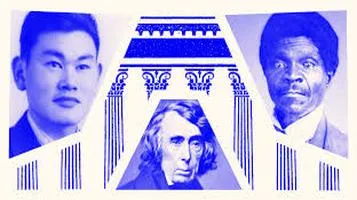Radiolab: A Beacon of Educational Enlightenment in the Podcasting World
Radiolab is an acclaimed educational podcast renowned for its innovative storytelling and deep dives into a wide array of topics, blending science, philosophy, and culture. Hosted by Jad Abumrad, Lulu Miller, and Latif Nasser, Radiolab crafts a unique auditory experience that combines investigative journalism with a compelling narrative style. Each episode explores complex concepts in an accessible and engaging manner, often incorporating interviews with experts, immersive sound design, and thought-provoking questions. Radiolab encourages listeners to ponder the mysteries of the universe, from the intricacies of human behavior to groundbreaking scientific discoveries. Its captivating approach not only informs but also inspires curiosity, making Radiolab a valuable resource for lifelong learners looking to explore the wonders of the world.

In the sprawling landscape of educational podcasts, Radiolab stands out as a beacon of intellectual curiosity and storytelling prowess. Since its inception in 2002, this innovative show has captivated audiences with its unique blend of science, philosophy, and human experience, all wrapped in a sonic tapestry that is as engaging as it is enlightening. Radiolab, produced by WNYC Studios, has set the gold standard for what an educational podcast can achieve, consistently pushing the boundaries of what audio storytelling can be.
One of the most striking aspects of Radiolab is its ability to make complex and often esoteric topics accessible and intriguing to a broad audience. The show delves into subjects ranging from the mysteries of the universe to the intricacies of the human mind, often blending multiple disciplines to provide a holistic understanding of each topic. For example, an episode might explore the nature of time by weaving together physics, philosophy, and personal anecdotes, creating a rich, multi-layered narrative that appeals to both the scientifically inclined and the philosophically curious.
The hosts, Jad Abumrad and Lulu Miller (and previously Robert Krulwich), are masterful guides through these intellectual journeys. Their chemistry and complementary styles—Abumrad’s inquisitive and often playful demeanor paired with Krulwich’s (and now Miller’s) more grounded and thoughtful approach—create a dynamic and engaging listening experience. They skillfully ask the questions that listeners might be pondering, providing clarity and insight without ever coming across as pedantic. Their genuine curiosity and enthusiasm for the subjects they explore are infectious, drawing listeners into even the most challenging concepts.
Radiolab’s storytelling is another cornerstone of its success. Each episode is meticulously crafted, often taking months to produce. The team’s commitment to high production values is evident in the seamless blending of narrative, sound effects, and music, creating an immersive auditory experience that is both educational and entertaining. The use of sound is particularly noteworthy; it’s not just a background element but an integral part of the storytelling. Soundscapes are used to illustrate concepts, evoke emotions, and transport listeners to different worlds, making the learning experience both visceral and memorable.
One of the show’s most significant strengths is its willingness to tackle big questions and controversial topics. Radiolab is not afraid to explore the gray areas of science and ethics, often presenting multiple perspectives on a given issue. This balanced approach encourages critical thinking and invites listeners to form their own opinions based on the evidence and arguments presented. Episodes like “The Bad Show,” which examines the nature of evil, or “The Fact of the Matter,” which delves into the complexities of truth in the age of misinformation, challenge listeners to grapple with difficult and sometimes uncomfortable questions, fostering a deeper understanding of the world around us.
Radiolab’s impact extends beyond its audio content. The show has cultivated a vibrant community of listeners who engage with the material through online discussions, social media, and live events. This sense of community and ongoing dialogue enhances the educational value of the podcast, providing opportunities for listeners to further explore and discuss the topics covered in each episode. The show’s website also offers additional resources, including transcripts, related articles, and further reading suggestions, allowing for deeper dives into the subjects that pique listeners’ interests.
In terms of its educational value, Radiolab excels in its ability to inspire curiosity and a love of learning. The show doesn’t just present facts; it tells stories that illuminate the human condition and our place in the universe. It encourages listeners to ask questions, seek out new knowledge, and view the world with a sense of wonder. This approach aligns with the best practices in education, which emphasize inquiry-based learning and the development of critical thinking skills.
However, Radiolab is not without its criticisms. Some listeners have noted that the show’s complex sound design can sometimes be overwhelming or distracting. Additionally, while the show’s broad range of topics is generally a strength, it can occasionally lead to episodes that feel less focused or cohesive. Despite these minor drawbacks, Radiolab’s overall quality and impact are undeniable.
In conclusion, Radiolab is a paragon of educational podcasting, offering a rich and engaging listening experience that stimulates the mind and stirs the soul. Its masterful storytelling, high production values, and commitment to exploring profound questions make it a standout in the crowded field of educational media. For anyone seeking to expand their horizons and delve into the mysteries of science, philosophy, and human experience, Radiolab is an invaluable resource—a true beacon of enlightenment in the digital age.






